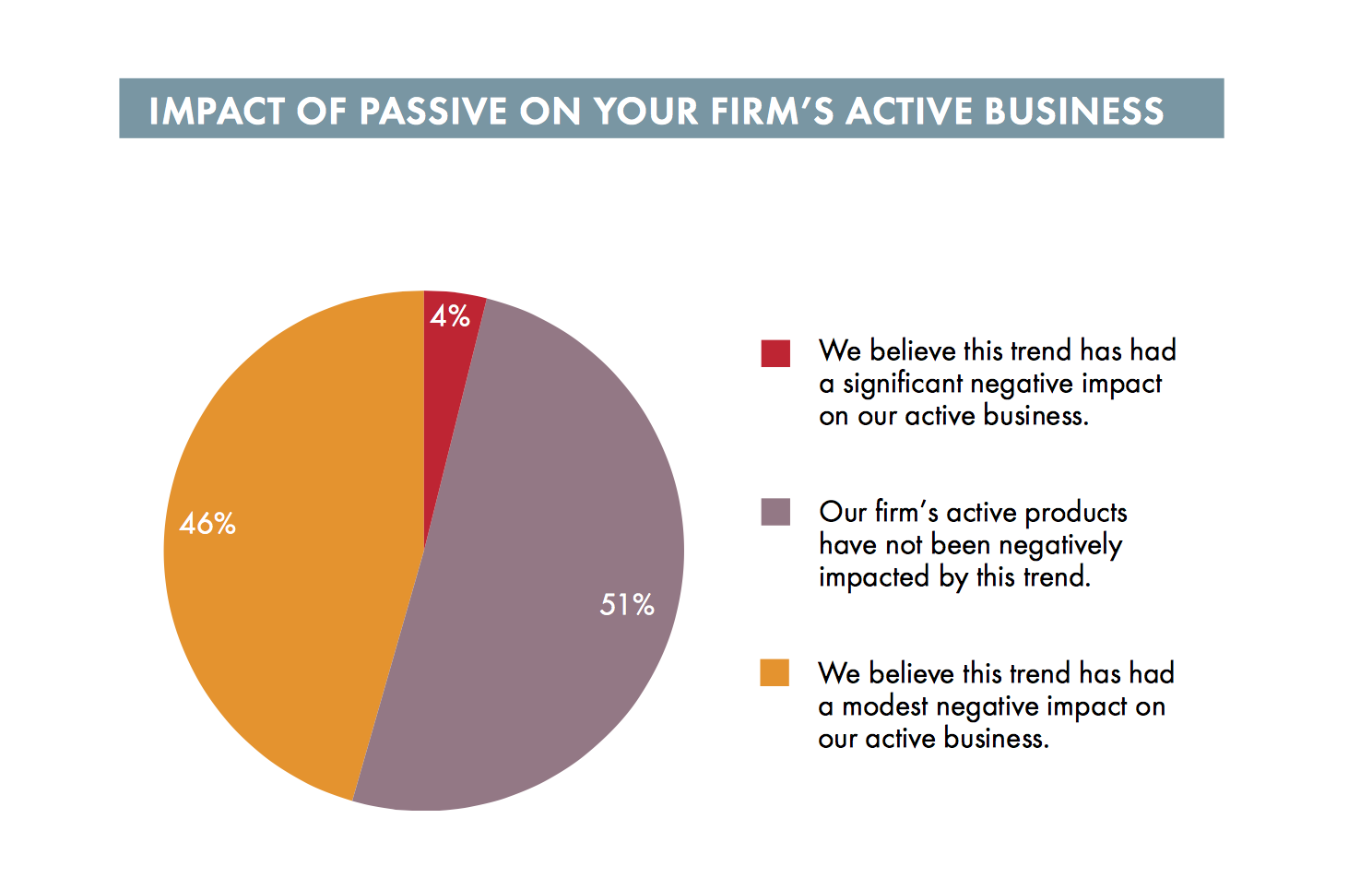Investment managers have remained confident about their ability to capture alpha despite steady inflows to passive strategies, according to Northern Trust.
The firm’s fourth quarter survey showed nearly 70% of managers said they expect little effect of the growth of smart beta strategies on their ability to generate alpha.
Almost all respondents said their active management divisions have been unaffected or modestly affected by the uptick in passive strategies. Only about 4% of managers said they perceived significant damage.
Managers were also confident that the trend towards passive investing and smart beta would continue at a modest pace or decline over the next five years. The survey showed only 9% expected smart beta strategies to take hold of significantly more market share between now and 2020.
Furthermore, only about 10% of managers believed the bump in asset flows into passive strategies would have “a long-term, systematic impact” on their ability to produce excess returns.
 (Source: Northern Trust)
(Source: Northern Trust)
Northern Trust also found managers were generally bullish about the US economy, while 80% said they anticipated increased volatility in the first half of 2015.
“Managers expect volatility to increase due to geopolitical instability, economic slowdowns in Europe and Japan, US equity valuations, and a dramatic drop in oil prices,” Christopher Vella, CIO for the firm’s multi-manager solutions, said.
However, the majority of respondents were positive about US corporate profits, job growth, and housing prices, reflecting positive views for 2015.
Nearly one-fifth of managers believed inflation would decrease over the next six months, largely due to drop in oil prices, the survey revealed.
Despite a volatile predicted market environment, about half of the managers were bullish on US large-cap equities, non-US developed equities, and more than 40% were positive about emerging market equities.
The majority of respondents, however, had negative outlooks for US fixed income and commodities.
Related Content: Bill Gross: The Bull Market Is Over, Goldman on 2015: Predictions for the Year Ahead
